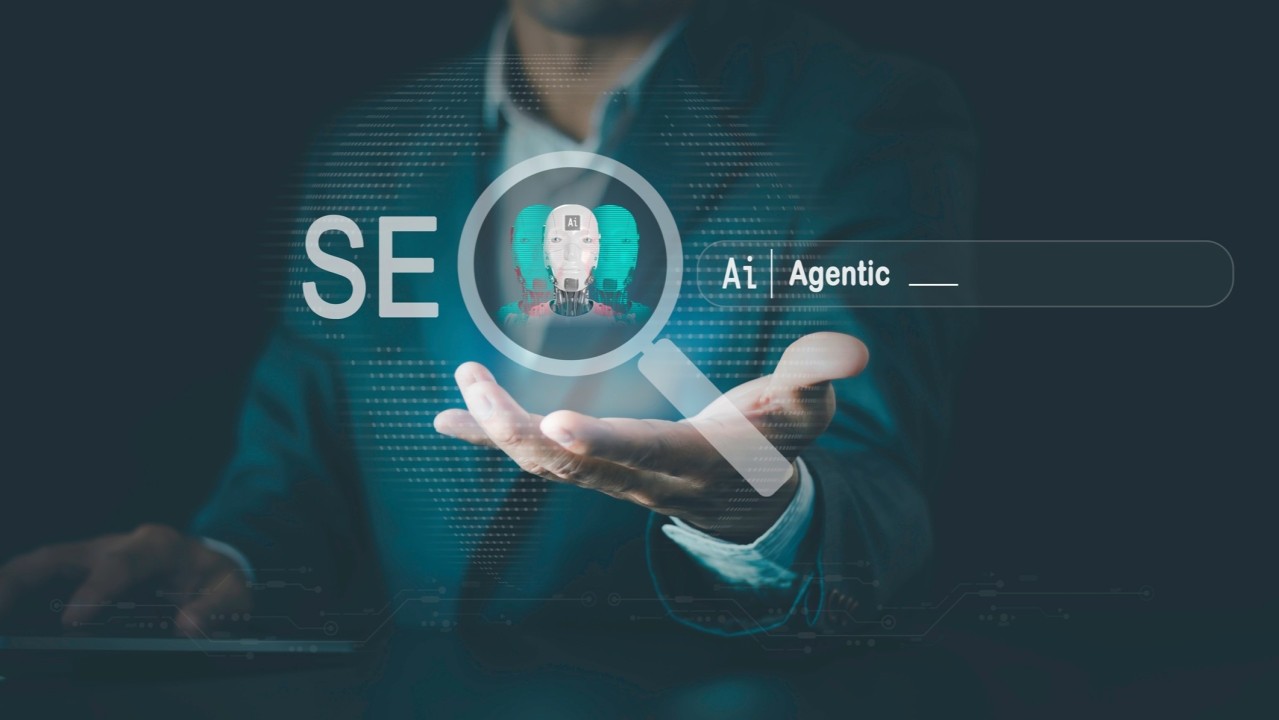News
The Future of SEO: How AI is Transforming Search Strategies for Maximum Visibility in 2024
As we navigate through 2024, the integration of AI in SEO strategies has become not just an innovation but a necessity for brands seeking to maintain and enhance their online visibility. The transformation is profound, influencing every aspect from keyword research to content creation, and providing unprecedented opportunities for marketers to optimise their online presence.
This article delves into how AI is reshaping SEO strategies, with a keen focus on the British market, and explores the implications for digital marketing professionals.
The Evolution of SEO and the Advent of AI
SEO has always been about understanding and adapting to the algorithms that search engines use to rank web pages. In the past, these algorithms were relatively straightforward, rewarding keyword density and backlink quantity. However, as search engines have evolved to prioritise user experience, so too have the strategies used to optimise for them. The introduction of AI into search algorithms, such as Google’s RankBrain, has significantly shifted the landscape, making search results more relevant and personalised.
AI’s capability to process and analyse vast amounts of data at incredible speeds allows for more sophisticated understanding and anticipation of user behaviour. For businesses in the UK, where the digital economy is a significant contributor to the GDP, staying ahead in the SEO game has become more crucial than ever. According to the Office for National Statistics, the digital sector contributed £151 billion to the UK economy in 2020, underlining the importance of effective digital marketing strategies for economic success.
AI-Powered Keyword Research and Content Optimisation
One of the most significant impacts of AI on SEO is in the realm of keyword research and content optimisation. Traditional keyword research tools provided data on search volume and competition, but AI-powered tools go further by offering insights into search intent and user sentiment. This allows marketers to create content that more closely matches what users are looking for, increasing the likelihood of ranking higher in search results.
AI’s role in content optimisation also extends to content quality and structure. Tools powered by natural language processing (NLP) can analyse top-ranking content and provide recommendations for improving readability, keyword integration, and semantic richness. This not only aids in ranking but also in meeting the user’s need for informative and engaging content.
Enhancing User Experience with AI
The user experience (UX) on a website is a critical factor that search engines consider when ranking pages. AI technologies are being used to analyse user behaviour patterns, enabling website owners to optimise site architecture, page loading speeds, and content layout for better engagement. For example, AI-powered chatbots have become increasingly common on websites, offering instant assistance to visitors and improving their overall experience.
Moreover, AI-driven analytics platforms provide deeper insights into user engagement metrics, such as bounce rates and time spent on page, allowing for more targeted UX improvements. This focus on UX not only aligns with search engines’ ranking criteria but also enhances the likelihood of conversion, a win-win for businesses.
The Role of AI in Building and Nurturing Backlinks
Backlinks remain a cornerstone of SEO, signalling to search engines the authority and credibility of a website. AI is streamlining the backlink acquisition process through the identification of potential link-building opportunities and the automation of outreach campaigns. Natural language generation (NLG) capabilities enable the creation of personalised outreach messages at scale, increasing the efficiency and effectiveness of link-building efforts.
Furthermore, AI tools can monitor the web for brand mentions that are not linked, providing opportunities to request backlinks and thus bolster a site’s link profile without the need for manual monitoring.
Local SEO and AI: A Focus on Localisation
For businesses operating in specific geographic areas, local SEO is crucial. AI is enhancing local SEO strategies by enabling more precise targeting and personalisation. By analysing location-based search data, businesses can tailor their content and online presence to match the local search intent, improving their visibility in local search results.
AI also plays a role in managing and optimising local business listings across various platforms, ensuring consistency and accuracy of information, which is vital for local SEO success.
The Future is Now: Adapting to AI-Driven SEO
As we look to the future, the integration of AI in SEO strategies is set to deepen, with emerging technologies offering even more sophisticated ways to enhance search visibility. Voice search, visual search, and the Internet of Things (IoT) are areas where AI’s impact is growing, requiring businesses to continually adapt their SEO strategies to stay ahead.
For digital marketing professionals, the message is clear: embracing AI is not optional but essential for SEO success. This entails not only adopting AI-powered tools but also developing an understanding of AI’s capabilities and limitations.
As AI continues to evolve, so too must our strategies for leveraging it, we advance into 2024, the integration of AI into SEO strategies is not merely an innovation but a necessity. This profound transformation is shaping how content is created, optimised, and consumed, with the ultimate goal of enhancing visibility in an increasingly crowded digital landscape.
The AI Revolution in SEO
The influence of AI on SEO is multifaceted, impacting everything from keyword research to content creation, and from user experience to backlink strategies. AI technologies, including machine learning algorithms and natural language processing (NLP), are enabling more personalised, relevant, and engaging search experiences. This evolution is driven by the need to cater to an ever-more sophisticated audience, armed with devices capable of delivering answers to their queries in milliseconds.
Understanding User Intent
One of the cornerstone changes in SEO practices, thanks to AI, is the shift from keyword-centric strategies to a focus on understanding and addressing user intent. Traditional keyword research tools are being supplemented (and in some cases, replaced) by AI-driven platforms that analyse search behaviour more holistically. These tools can interpret the nuances of search queries, distinguishing between informational, navigational, and transactional intents.
The significance of aligning content with user intent cannot be overstated. A study by BrightEdge revealed that understanding user intent and creating content accordingly could increase website traffic by up to 50%. In the UK, where internet penetration stands at 96% as of 2023, tapping into the precise intent of this digitally savvy population can lead to substantial improvements in search rankings and visibility.
Content Creation and Optimisation
AI’s role in content creation and optimisation is another game-changer. Tools powered by AI can help identify content gaps and opportunities, enabling marketers to produce material that resonates with their target audience while also aligning with search engine algorithms. Moreover, AI-driven content optimisation tools can suggest improvements in real-time, from adjusting keyword density to enhancing readability, thereby increasing the likelihood of achieving top search rankings.
The evolution of Google’s algorithms, with updates like BERT and MUM, underscores the importance of context and user-focused content. These updates leverage NLP to understand and interpret the nuances of language, making it possible for search engines to grasp the context behind search queries. As such, content that is rich, informative, and nuanced is favoured, pushing marketers to prioritise quality and relevance.
Technical SEO and User Experience
AI is also revolutionising technical SEO and user experience (UX). AI-powered analytics tools offer unprecedented insights into how users interact with websites, identifying potential obstacles to engagement and conversion. This data-driven approach enables webmasters to tailor their sites to meet the expectations of both users and search engines.
Furthermore, AI technologies are being used to improve website speed, mobile-friendliness, and overall design—factors that are critically important for SEO. For instance, Google’s PageSpeed Insights tool now incorporates AI to provide more accurate recommendations for speeding up website load times (source: Google Developers).
The Future of Links and AI’s Role in Building Authority
The importance of backlinks in SEO has remained constant, but AI is changing how these links are earned and valued. AI tools can analyse the link profiles of competitors and identify potential link-building opportunities. Moreover, the increased sophistication of search engine algorithms means that the quality of links has overshadowed quantity.
AI-driven platforms assist in identifying high-quality, relevant sites for link acquisition, aligning with Google’s emphasis on relevance and authority.
Ethical Considerations and the Path Forward
As AI continues to transform SEO, ethical considerations come to the forefront. The potential for manipulation and the creation of misleading content raises concerns. Google’s guidelines have evolved to discourage such practices, advocating for transparency, accuracy, and fairness. As we navigate the future of SEO, adhering to these principles will be paramount.
The integration of AI into SEO strategies offers the potential to achieve maximum visibility in a competitive digital landscape. By understanding user intent, creating and optimising high-quality content, enhancing technical SEO and UX, and building authoritative links, digital marketers can leverage AI to meet the sophisticated demands of both search engines and users.
The future of SEO is undeniably intertwined with AI, heralding a new chapter in digital marketing. As we look ahead, the focus will increasingly shift towards creating more personalised, relevant, and engaging online experiences. For businesses and marketers, staying abreast of these trends and embracing the power of AI will be key to achieving success in the ever-evolving world of search.





The Ultimate Social Media Guide
With the ever-growing power of social media, we use the latest techniques, video, and animation software to craft eye-catching social media assets that make your brand pop. Our designers, wielding Adobe Creative tools, create distinctive animations and graphics to illuminate your brand story and highlight your products or services. Want a unique design? No problem – we also offer bespoke designs to match your brand aesthetic.